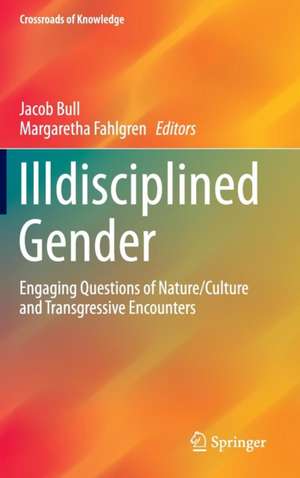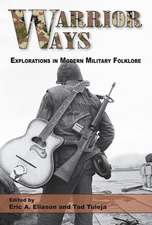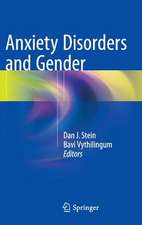Illdisciplined Gender: Engaging Questions of Nature/Culture and Transgressive Encounters: Crossroads of Knowledge
Editat de Jacob Bull, Margaretha Fahlgrenen Limba Engleză Hardback – 28 noi 2015
| Toate formatele și edițiile | Preț | Express |
|---|---|---|
| Paperback (1) | 381.00 lei 6-8 săpt. | |
| Springer International Publishing – 23 aug 2016 | 381.00 lei 6-8 săpt. | |
| Hardback (1) | 388.13 lei 6-8 săpt. | |
| Springer International Publishing – 28 noi 2015 | 388.13 lei 6-8 săpt. |
Preț: 388.13 lei
Nou
Puncte Express: 582
Preț estimativ în valută:
74.27€ • 77.54$ • 61.47£
74.27€ • 77.54$ • 61.47£
Carte tipărită la comandă
Livrare economică 04-18 aprilie
Preluare comenzi: 021 569.72.76
Specificații
ISBN-13: 9783319152714
ISBN-10: 3319152718
Pagini: 165
Ilustrații: XI, 159 p.
Dimensiuni: 155 x 235 x 18 mm
Greutate: 0.42 kg
Ediția:1st ed. 2016
Editura: Springer International Publishing
Colecția Springer
Seria Crossroads of Knowledge
Locul publicării:Cham, Switzerland
ISBN-10: 3319152718
Pagini: 165
Ilustrații: XI, 159 p.
Dimensiuni: 155 x 235 x 18 mm
Greutate: 0.42 kg
Ediția:1st ed. 2016
Editura: Springer International Publishing
Colecția Springer
Seria Crossroads of Knowledge
Locul publicării:Cham, Switzerland
Public țintă
ResearchCuprins
1 Illdisciplined Gender: Nature/Culture and Transgressive Encounters.- 2 Interstitial spaces – A model for transgressive processes.- 3 Failed encounters, or the challenges of rendering gender a matter of concern.- 4 Images of cows, stories of gender.- 5 TechnoVisions of a Sámi cyborg: re-claiming Sámi body-, land- and waterscapes after a century of colonial exploitations in Sábme.- 6 “Marking the Unmarked: Theorizing Intersectionality and Lived Embodiment through Mammoth and Antichrist”.- 7 When the Plant Kingdom Became Queer: On Hermaphrodites and the Linnaean Language of Non-normative Sex.- 8 Unyoking Sexual Difference: Law, Universality and the Excluded Other.
Textul de pe ultima copertă
This volume offers some of the outputs, challenges and opportunities created in an interdisciplinary programme that was set up to engage multi-, inter- and transdisciplinary perspectives on issues at the intersections of nature and culture, sex and gender.
When working with mass spectrometers, microscopes, discourse analysis or interviews, one rarely has to explain them to colleagues. They are the tools used. But when working in inter- or transdisciplinary settings, such tools require explanations. These conversations make evident that trans and interdisciplinary (gender) research is a not just a novelty requiring an adjectival prefix ‘trans-‘ or ‘inter-’, it is something done, performed, practiced. Moreover it is something done in particular spaces, a consequence of particular meetings – transgressive encounters. This collection is built on work conducted under the GenNa: Nature/Culture and Transgressive Encounters Research Programme, funded by the Swedish research council. It brings together a range of scholars from the humanities, natural, physical, life, and social sciences by so doing it reflects on the challenges, risks and opportunities of doing trans- and interdisciplinary work. The result is a collection that uses a multitude of tools to examine issues such as sexual difference, hydro power exploitation, research seminars, dairy farming, the spaces between molecules, film and identity. They are witness to the diversity created through transgressive encounters and illustrations of doing inter- and transdisciplinary research.
When working with mass spectrometers, microscopes, discourse analysis or interviews, one rarely has to explain them to colleagues. They are the tools used. But when working in inter- or transdisciplinary settings, such tools require explanations. These conversations make evident that trans and interdisciplinary (gender) research is a not just a novelty requiring an adjectival prefix ‘trans-‘ or ‘inter-’, it is something done, performed, practiced. Moreover it is something done in particular spaces, a consequence of particular meetings – transgressive encounters. This collection is built on work conducted under the GenNa: Nature/Culture and Transgressive Encounters Research Programme, funded by the Swedish research council. It brings together a range of scholars from the humanities, natural, physical, life, and social sciences by so doing it reflects on the challenges, risks and opportunities of doing trans- and interdisciplinary work. The result is a collection that uses a multitude of tools to examine issues such as sexual difference, hydro power exploitation, research seminars, dairy farming, the spaces between molecules, film and identity. They are witness to the diversity created through transgressive encounters and illustrations of doing inter- and transdisciplinary research.
Caracteristici
Reflects the diversity in gender research Explores how space, place and identity are active in the research process Exemplifies how gender studies can inform and be informed by different disciplinary heritages

















